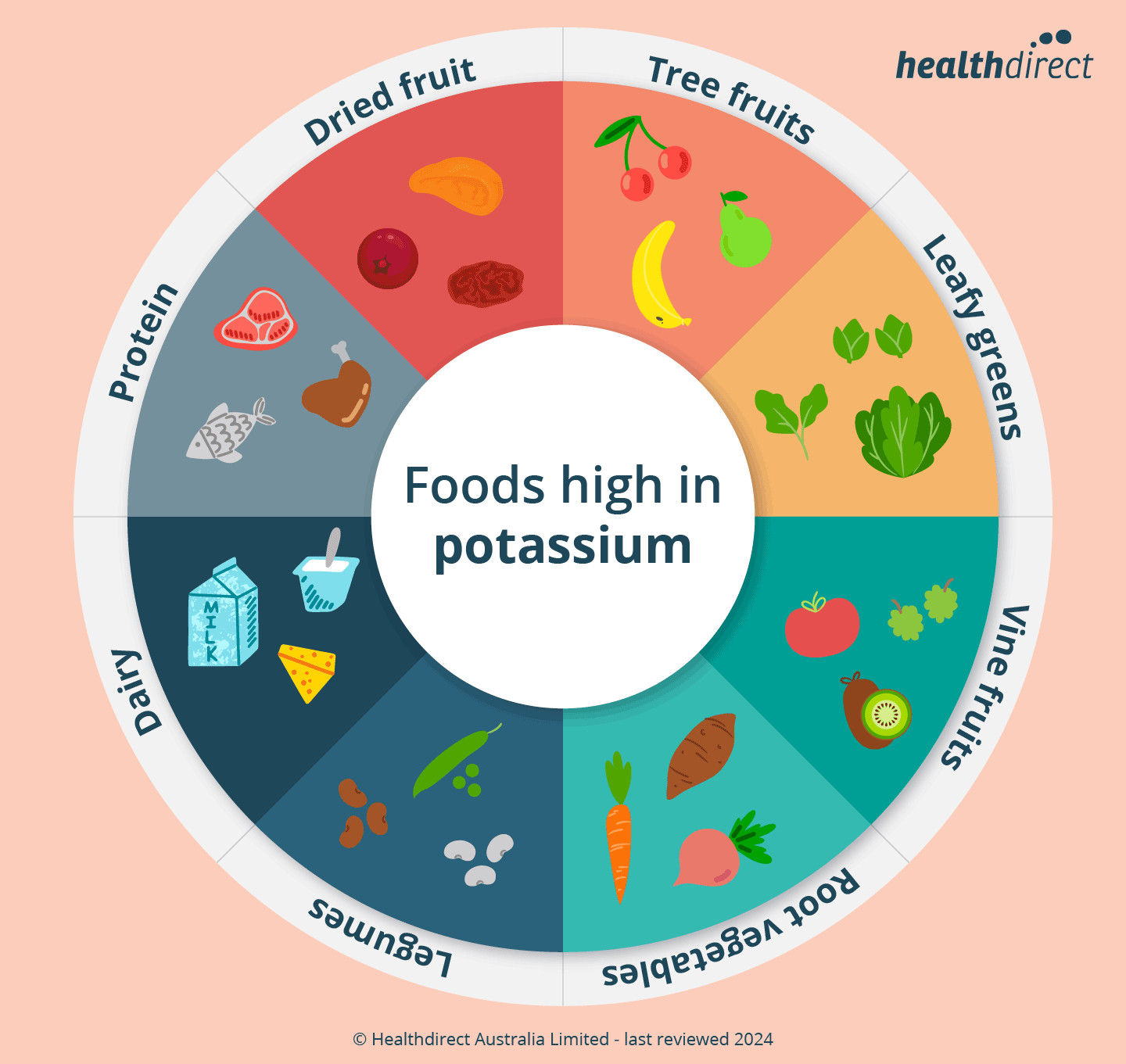Potassium is an essential mineral that your body needs to function correctly. It plays a key role in nerve signaling, muscle contractions, and maintaining a healthy heart rhythm. Ensuring you consume enough potassium-rich foods is vital for overall well-being. But what exactly are the best dietary sources of this important nutrient?
Fortunately, potassium is found in a wide variety of common foods, making it relatively easy to incorporate into your diet. By focusing on whole, unprocessed foods, you can naturally boost your potassium intake.
Fruits: Many fruits are excellent sources of potassium. Bananas are perhaps the most well-known, but don’t overlook other potassium-packed options like apricots and dried apricots, avocados, oranges, and even apples. Including a variety of fruits in your daily meals and snacks is a delicious way to increase your potassium consumption.
Vegetables: Vegetables, particularly leafy greens, vine fruits, and root vegetables, are nutritional powerhouses of potassium. Spinach, kale, tomatoes, cucumbers, zucchini, eggplant, pumpkin, carrots, potatoes, and sweet potatoes all contribute significantly to your daily potassium needs. Roasting, steaming, or grilling these vegetables can enhance their flavor and make them a tasty addition to any meal.
Legumes: Beans and peas are not only great sources of plant-based protein and fiber, but they also offer a good amount of potassium. Whether you choose kidney beans, black beans, lentils, or chickpeas, incorporating legumes into your diet is a smart way to increase your potassium intake while enjoying other nutritional benefits.
Dairy and Protein Sources: Dairy products like milk and yogurt, as well as protein sources such as meat, chicken, and fish, also contain potassium. Fish varieties like halibut, tuna, cod, and snapper are particularly good choices. These options provide potassium alongside other essential nutrients like calcium and protein, contributing to a balanced and healthy diet.
 A visual guide to potassium-rich foods: Discover top sources like fruits, vegetables, legumes, dairy, and protein, essential for maintaining healthy potassium levels.
A visual guide to potassium-rich foods: Discover top sources like fruits, vegetables, legumes, dairy, and protein, essential for maintaining healthy potassium levels.
Maintaining adequate potassium levels is generally achievable through a balanced diet rich in these food groups. However, certain medical conditions or medications, such as diuretics, can impact potassium levels. If you have concerns about your potassium intake or believe you may be at risk of a deficiency or excess, it’s always best to consult with your doctor or a registered dietitian for personalized advice and to determine if potassium-rich foods are sufficient for your needs.

